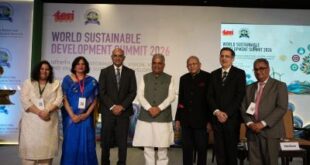Newcastle University’s study finds that energy drinks are associated with an increased risk of mental health issues among children and young people, including anxiety, stress, depression, and suicidal thoughts.
February 21, 2024: Energy drinks are getting popular among children and teenagers due to their attractive packaging and to-the-point marketing strategies. These drinks are often sold as a source of instant energy and improved performance, leading to their increased consumption among young individuals. However, consumption of energy drinks may lead to an increased risk of poor academic performance, sleep problems, and unhealthy dietary habits.
In a study that was published in the Public Health journal, researchers discovered that boys were more likely than girls to drink energy drinks and that this consumption was also linked to an increase in risky behaviors like drug use, aggression, and unsafe sex.
Deeply Concerning
Researchers at Newcastle University and Teesside University’s Fuse, the Centre for Translational Research in Public Health, examined data from 57 studies involving over 1.2 million children and adolescents from more than 21 different nations.
According to experts, this emphasizes the necessity of taking legislative action to limit the marketing and sale of energy drinks to minors.
Fuse, the Centre for Translational Research in Public Health at Newcastle University, where co-author Dr. Shelina Visram is a Senior Lecturer in Public Health, expressed her great concern about the findings that energy drinks can cause psychological anguish and mental health problems. These are significant issues with public health that require attention.
Dr. Shelina Visram expressing her concerns said: “There has been policy inaction on this area despite government concern and public consultations. It is time that we take action on the fastest-growing sector of the soft drink market. We are deeply concerned about the findings that energy drinks can lead to psychological distress and issues with mental health.”
This is a 2016 review that has been updated. The Centre for Translational Research in Public Health (Fuse) researchers published the first study in 2017 that thoroughly examined children’s opinions on energy drinks, even down to the age of 10.
After discovering that energy drinks were being offered to teenagers for less money than bottled water, the academics urged the UK government to take action against the sale of these drinks to anyone under the age of sixteen.
Energy drinks were found to be widely accessible in neighborhood stores, priced as low as 25p (during “four for £1” promotions), marketed to children via internet advertisements, computer games, television, and sports sponsorship, and associated with extreme sports, gaming, gender, sexuality, and the use of sexualized imagery.
According to earlier studies, young people in the UK were the largest energy drink drinkers in Europe for their age group, and up to one-third of youngsters in the UK regularly drank caffeinated energy drinks.
Professor Amelia Lake spoke before the House of Commons Science and Technology Committee regarding the impact of energy drinks on the mental and physical health of youth. She was also involved in a nationwide campaign spearheaded by celebrity chef Jamie Oliver to ban the sale of energy drinks to minors. Following this, several sizable UK supermarkets decided to forbid selling energy drinks to minors.
Lead author Professor Lake, Professor of Public Health Nutrition from Fuse, the Centre for Translational Research in Public Health at Teesside University, said: “Energy drinks are marketed to children and young people as a way to improve energy and performance, but our findings suggest that they are doing more harm than good. We have raised concerns about the health impacts of these drinks for the best part of a decade after finding that they were being sold to children as young as 10 years old for as little as 25p. That is cheaper than bottled water. The evidence is clear that energy drinks are harmful to the mental and physical health of children and young people as well as their behaviour and education. We need to take action now to protect them from these risks.”
Regulating energy drinks
Several countries have made efforts to regulate energy drinks, such as imposing bans on sales to individuals under 18 in Lithuania and Latvia. In the UK, the government conducted a consultation on prohibiting the sale of energy drinks to children in England, a proposal also outlined in the 2019 green paper ‘Advancing our health: prevention in the 2020s’.
Despite 93% of respondents supporting restrictions for those under 16, no further action has been taken. In 2022, the devolved government in Wales initiated its consultation to prohibit the sale of energy drinks to those under 16.
The UK Food Standards Agency defines energy drinks as beverages with elevated caffeine levels, often marketed as providing a mental and physical ‘boost’ compared to regular soft drinks. It distinguishes them from ‘sports drinks’ intended for electrolyte replacement during exercise.
The caffeine content in a can of energy drink can range from 80mg (equivalent to two cans of cola or a mug of instant coffee) to 200mg (equivalent to five cans of cola).
William Roberts, Chief Executive of the Royal Society for Public Health, emphasized the importance of a review indicating potential harm to children and young people’s physical and mental health from energy drinks. He urged the UK Government to fulfill its 2019 commitment to ban sales of energy drinks to those under 16, citing the support of the majority of the public and aligning with the actions of countries that have already restricted sales to children. Over 40 health-related organizations have joined researchers in urging the government to finally restrict the sale and marketing of energy drinks to children and young people.
 Newspatrolling.com News cum Content Syndication Portal Online
Newspatrolling.com News cum Content Syndication Portal Online






